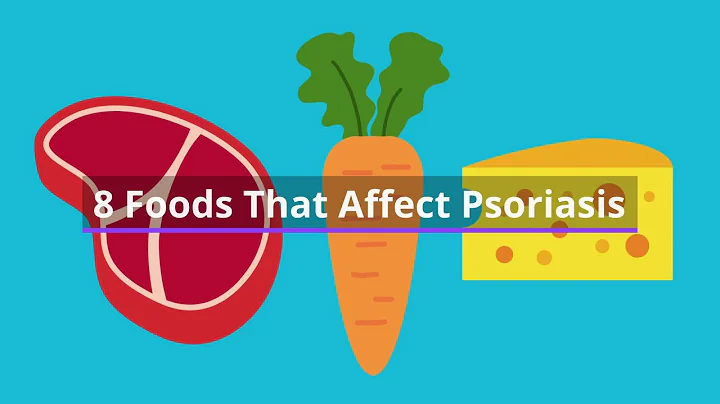Psoriasis, commonly known as psoriasis, is a skin disease. Because it is commonly known as psoriasis, it is naturally thought to be contagious. In fact, it is an autoimmune disease , not a bacterial or viral infection, so it is not contagious. The following is a detailed description of the relevant knowledge about psoriasis.

What is psoriasis
It is a skin disease stimulated by environmental factors, controlled by polygene genetics, and immune-mediated. Therefore, it is an autoimmune disease and a chronic psoriasis skin disease. The typical manifestation is psoriasis erythema or plaque, which can be localized or widely distributed throughout the body. Some are also combined with symptoms such as joint symptoms or metabolic syndrome. The disease is delayed and prone to recurrence, seriously affecting the patient's quality of life. There is currently no cure, but attacks can be controlled.
What is the prevalence of psoriasis?
In European and American countries, the prevalence of psoriasis is 3% to 4%. The prevalence rate in my country is low, 0.47%. It can occur in all age groups, but most people are younger than 40 years old. No gender differences.

What are the types of psoriasis?
It can be divided into four types according to clinical characteristics: vulgaris type, arthropathy type, pustular type, erythroderma type.
According to the location, it is divided into: scalp psoriasis, nail psoriasis, and vulvar psoriasis.
The cause and inducement of psoriasis
The cause of psoriasis is unclear, and it is considered to be related to genetic and immune factors.
The causes of psoriasis include bacterial and viral infections. For example, if you are repeatedly infected with strep throat, you may be at a higher risk of developing psoriasis. Other triggers include stress, obesity, smoking and drugs.

Clinical manifestations of psoriasis
Psoriasis can involve local or systemic skin, and even joints. Different clinical types have corresponding typical symptoms.
Psoriasis vulgaris: is the most common type, accounting for more than 99%.
usually starts acutely. The disease starts with red papules or maculopapular rash, and then develops into red plaques with clear borders, covered with white silver shavings. When scraping these silver shavings, you will find that the silver shavings are layer by layer. Yes, like scraping wax drops, this is the characteristic of red plaques and silver shavings.

After scraping off the silver shavings, you can see the light red shiny translucent film underneath. After peeling off the film, you can see tiny dot-like bleeding points. This is what the underlying skin lesion looks like.
Skin lesions commonly occur on the elbows, knees and sacrococcyx, and are generally distributed symmetrically.
The skin lesions may cause itching, burning and pain, and the skin may be dry and may rupture and bleed.
Cranial psoriasis can appear as thick scales on the scalp.
Articular psoriasis: In addition to skin lesions, it is also accompanied by symptoms of small joints, such as joint swelling and pain, and in severe cases, it can develop into joint deformities.
Pustular psoriasis: In psoriasis vulgaris, dense pustules the size of miliary grains appear on the skin lesions, and the pustules can also merge into a "pus lake". It usually occurs on the palms of the hands, fingers, soles of the feet and toes. Nails may have pitted depressions, transverse grooves, nail turbidity and subungual pus. This type may be accompanied by chills and high fever.
Erythrodermic psoriasis: A very rare type. The skin all over the body is red and swollen, and there are a lot of scales on the skin lesions, which may be accompanied by fever, lymph node swelling, , etc.

How to treat psoriasis
The purpose of treatment is to control the disease, delay the progression of the disease, relieve symptoms, prevent recurrence, and improve the quality of life.
will select an individualized treatment plan based on the severity of the disease, type of disease, age, etc.
Treatment methods include: topical and oral drug treatment, physical therapy and traditional Chinese medicine treatment.Topical drugs are mainly used because they directly act on skin lesions, have quick onset of effect, are easy to use, and have few systemic side effects. Topical drugs include retinoic acid preparations, vitamin D3 derivatives, and glucocorticoids . Oral drugs are mainly immunosuppressants and biological agents.
It should be noted that due to the chronic and recurring characteristics of psoriasis, patients are very irritable and anxious, and have high psychological pressure, which is not conducive to the improvement of the disease. Therefore, it is necessary to communicate and provide psychological counseling with patients to reduce stress and improve the quality of life.
In short, psoriasis is an autoimmune disease and is not contagious. Current treatments can control the disease, reduce attacks, and improve quality of life. In addition to medication, treatment also requires psychological communication to reduce patient stress and improve quality of life.





















